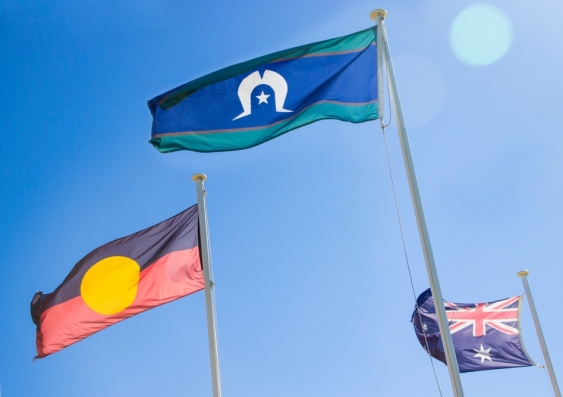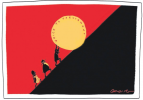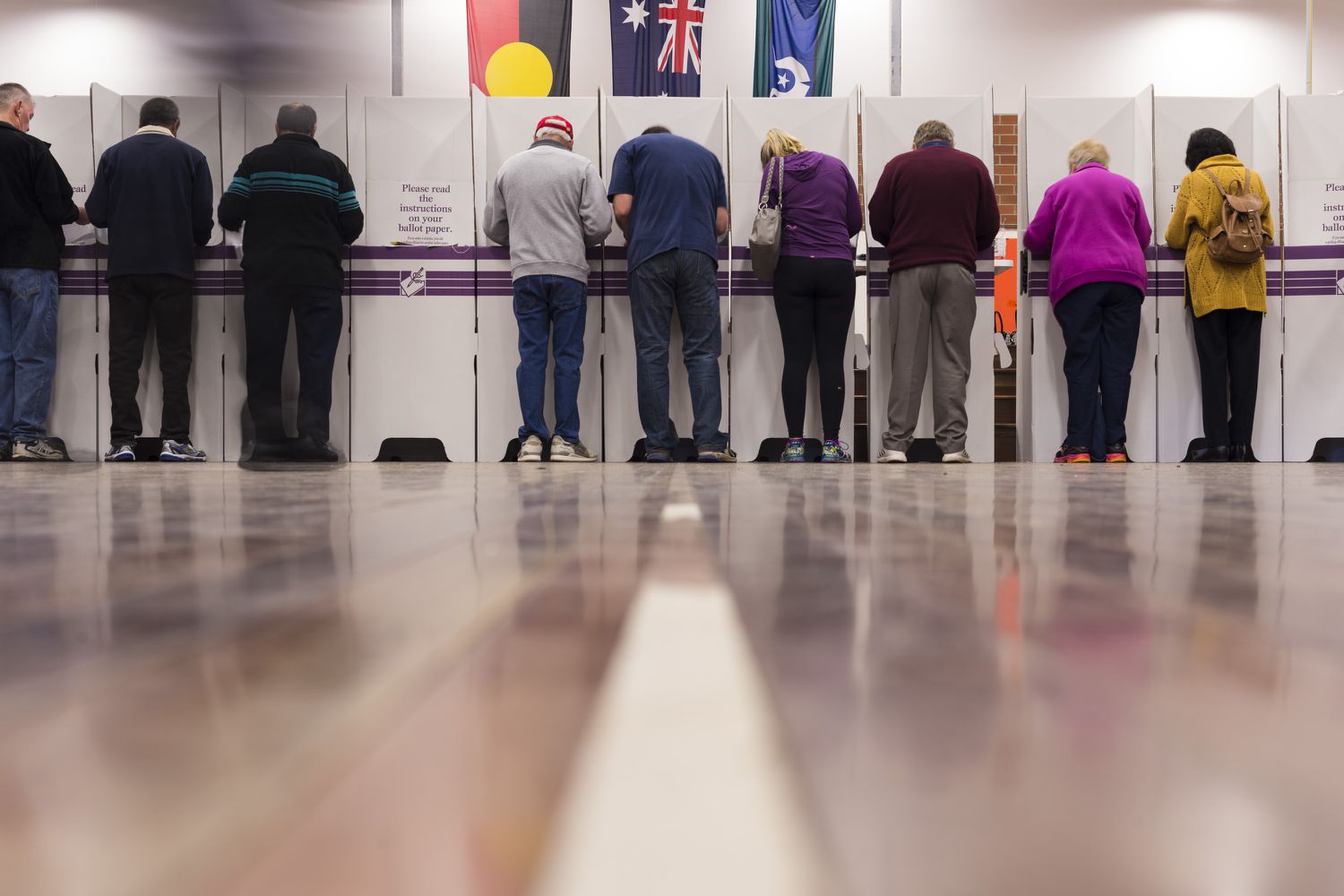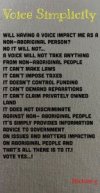Interessant verhaal, uit eerste hand van de Australische schrijfster Van Badham, over hoe dingen uit het verleden doorwerken in het heden
Let me tell you a story about two Australian families, and a house. One of the families is mine.
Get comfortable, it’s a twisty tale - and I’ll tell it as truthfully as I know it, as all the people I talk about in my own story are dead and, alas, can’t interrupt to correct me.
My mother’s side of the family originates from County Kerry, and the west coast of Ireland. They were Catholic, they were poor, they spoke Irish, not English - and because of centuries of British colonialism that had at one point stripped Irish Catholics of the right to own land, they had no property.
With so few prospects in the old country, my mother’s grandfather sought opportunity in a new one; he emigrated to Australia in 1908.
He got work as a sheep-shearer, which was hard and dirty and brutal. His young wife travelled with him, and my grandmother and her four siblings were all born in different places as the family travelled with him from sheep station to sheep station.
It was an unsustainable life, and the family of seven eventually moved back to Sydney, where there was an established Irish community in the inner city suburbs of Surry Hills, Newtown and Erskineville. These places are fancy now, but they used to be poor and rough. As far as I know, my grandmother and all her siblings were out of school and all working by the age of 14.
My grandmother found work as a retail assistant in a department store in Newtown, which is where she met my grandfather - another Irish Catholic boy from the community (and reputedly great fun at a party) who was also a retail assistant there.
The Depression hit, and retail work was suddenly unstable. My grandmother’s brothers went “on the wallaby” (although my family never used that term), going out to the Riverina to live as cheaply as possible off the land and take whatever work was on offer. My grandfather did whatever he had to do and took whatever work he could.
Australia hadn’t quite recovered from the Depression when World War II broke out. My grandfather deployed in the infantry and was gone for years. He never talked to the family about what he saw in active service, but late in life he did one day make a pile in the backyard of his old uniform, medals and war stuff, set it on fire and burn it to ash, which says much.
But what my grandfather and family did receive from his war service was a life-changing act of government policy.
The “War Service Homes” scheme provided veterans with the opportunity of low-cost government home loans with low insurance costs - which enabled my scrappy little working-class Catholic family to finally - finally - own property.
The house they built was barely more than a fibro shack on the grey sand of what was then an outer suburb of Sydney, but it transformed our fortunes. The whole family worked to pay off that loan - my mother left school at 15 - but the permanence of that house meant there was now always a roof over people’s heads whether they were in work or out of it, a place for them to go if their relationships went bad and they needed to get out of them, somewhere to rest if they got sick. Somewhere to be cared for and die when they got old.
All of this took financial strains off our family and enabled other opportunities. As my cousins and I got older, we pursued further education. One of my cousins moved in with our Nanna and studied, from that house, for her university degree.
With the help of that single housing asset, our family went from immigrant, itinerant shearers to University educated in three generations.
Many immigrant Australian families have similar stories of opportunity and transformation…
… But many Aboriginal Australian families don’t.
I told the story of the little fibro house and its role in our family’s class transition on a panel a few years ago. One of the other panellists was a Murri woman from Queensland.
Her family were also working class, and had also weathered the Depression at the rough end. Her grandfather had also served in WW2, and was a veteran like my own, bearing the same, unspoken witness to those unimaginable events.
But her grandfather wasn’t offered a loan for a “War Service Home” - because he was Aboriginal Australian, and Aboriginal Australian veterans were excluded from the scheme. And from the 1940s on - while my family were slowly building some intergenerational wealth with a cheap house subsidised by the government - her family couldn’t even get access to a commercial bank loan. Many families were not even able to open bank accounts, merely because they were Aboriginal Australians.
Remember - the referendum to confer Australian citizenship rights on Aboriginal and Torres Strait Islander Australians may have passed in 1967… but it took until 1975 for the Racial Discrimination Act to make discrimination illegal.
It’s mind-boggling: in 1974, the year I was born, racial discrimination was still LEGAL in Australia.
So, consider - before you even take in the dispossession of Aboriginal Australians from their land, the stealing of children, the racism, violence and abuse - at the key point in the economic and social trajectory of two Australian families, one single policy decision to discriminate against her family and benefit mine structuralised an ongoing inequality.
Yep, this woman and I sit on the same panels in a society that finally acknowledges our equality through the law… but her family has not had equal opportunities to mine. Her parents died far younger than mine did. Her entire community lives in the legacy of chaos and trauma and hardship provoked by those unequal conditions. She has had a harder fight than I did to get to the same place. And Aboriginal Australian children born today still have that harder fight ahead of them because those old, structural inequalities still - still - have not been redressed.
Material reality doesn’t go away just because our social attitudes change.
No one should be obliged to live life on a higher difficulty setting because they are born an Aboriginal or Torres Strait Islander Australian. It is morally nonsensical and it actively weakens us as a nation. We should ALL be thriving.
It’s been really hard this week seeing the amount of “no” comments from people who insist that they are opposed to the “Voice” claiming they believe in “equality”.
Politely, if you decide to ignore the existence of unequal experiences, unequal opportunities and unequal material realities in front of you, you are helping to perpetuate all of them.
All that Aboriginal and Torres Strait Islander Australians are asking for is the capacity to “make representations” to government, so that we as a whole Australia can have a meaningful conversation about how our shared trajectories as a people can finally be made fair.
That is what the Voice to parliament is, and that is why I am voting for it.
If you believe that Australia should be a nation of opportunity for all its citizens, I hope that you do, too.





